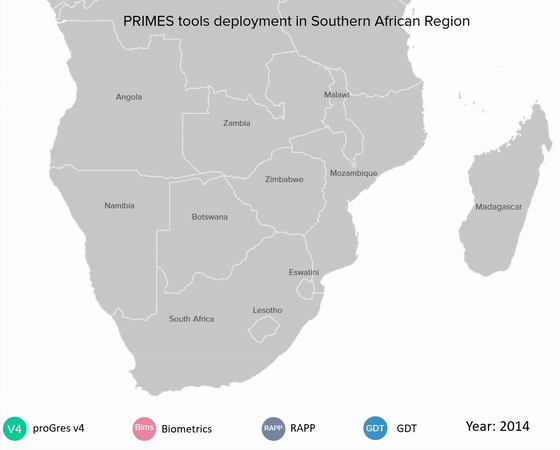Every refugee and asylum seeker has a unique identity that should be legally recognized and should grant access to fundamental rights, facilitate protection as well as the delivery of assistance and durable solutions. In that regard, registration is a key process to record and preserve a refugee’s identity.
In 2017, UNHCR rethought its approaches to registration and identity management and took advantage of new advances in information technology to assemble all its custom-made tools gathering Refugees’ data into a new trust and service platform: PRIMES or Population Registration and Identity Management EcoSystem.
Last year, a total of 58 countries were using proGres v4, the UN Refugee Agency revamped refugee registration and case management system and a newly developed Rapid Application, RApp, that allows for off-line registration, had been tested in 17 countries in a year.
By the end of 2018, more than 7.1 million people were biometrically enrolled in 60 Country Operations over the world, meaning that 8 in every 10 refugees registered by UNHCR now has a biometric identity. Besides, thanks to the Global Distribution Tool, UNHCR is now using biometrics to improve assistance distribution to quickly and accurately verify refugee during distribution in 8 countries.
Southern Africa is one of the first region to deploy PRIMES in all its countries with proGres v4 and Biometrics being operational in more than 10 countries, RApp piloted in 7 countries and GDT used in Namibia.

Data of more than 2.4 million persons of concern are now securely hosted in proGres v4, one of the core module of our central Population Registry. Our goal is that, that by end of 2019, all refugee data will be covered.
To reach that target, DPSM deployment teams, DIST technical teams and expert colleagues from DIP have been closely working with country operations to prepare and implement PRIMES roll-out.
Once PRIMES is rolled-out in a country, a newly set-up PRIMES Support Unit, consisting of protection, registration and technical staff, supports Field Operations daily. Partners and UNHCR staff have equal access to a dedicated support site and they can also contact the team with any question or request related to PRIMES tools.
We believe that PRIMES suites of applications will enhance the capacity of UNHCR to collect and analyze data and hence help colleagues and partners offer a better protection and assistance to refugees and other displaced populations.
We also believe that in a future not so far away, PRIMES will eventually be the single-entry point for all digital interaction between UNHCR, partners and all the individuals who are registered.

very nice thank you